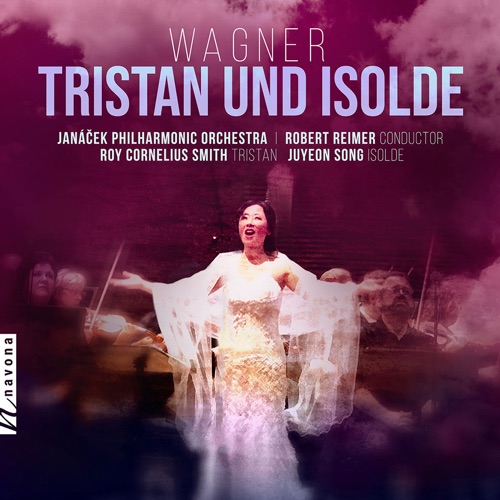
Given our current circumstances, my appetite for the composer’s music dramas would have to be satisfied for now by surveying recordings until theaters and concert halls reopen upon our population’s immunization with an efficacious vaccine.
Although professionally recorded opera no longer enters the discography with the same frequency of decades prior, there at least still exist some companies that commit more prestigiously cast concert performances and even the rare unicorn of a studio project to CD. Warner and Sony for instance, have replaced Decca and Deutsche Grammophon as this decade’s more interesting purveyors of professionally produced opera recordings (recall the outstanding Troyens from Strasbourg, and the recent mixed bag of a studio Otello from Rome).
Pentatone, a smaller label founded in the wake of Philips’ demise, has also proven to be another interesting source of commercially recorded opera (Pentatone’s Wagner centennial series directed by Marek Janowski represent one of its catalogue’s most ambitious projects). Despite this shift in the business model, opera recording projects still command considerable financial resources and as such remain mostly within the purview of larger companies.
Imagine my surprise then when I discovered a new recording of Tristan released by Navona Records, a small label based in New Hampshire that primarily focuses on recitals of chamber music, solo works, and smaller ensemble pieces. This new Tristan, conducted by Robert Reimer and played by the Janacek Philharmonic Orchestra, is the label’s biggest production to date.
In fact, it is the only opera in a catalog populated by contemporary composers, a healthy mix of purely classical and crossover artists, and technicolor album covers that give the label a feel of being the classical music industry’s answer to Putumayo World Music.
Navona’s new recording is a curious affair that was underwritten by the Claude Heater Foundation. The organization is named after the American singer/actor whose most notable credit on a major opera recording was Melot in Karl Böhm’s legendary 1966 Tristan from Bayreuth. Mr. Heater spent much of his operatic career as a baritone before recalibrating his instrument in the 1960s to take on dramatic tenor roles.
One of his more famous stage appearances after his fach transition was a Tristan beside the Isolde of Klara Barlow in Spoleto, with both photogenic principal artists exhibiting glamor that is often absent in Wagnerian stages. The tenor then retired from opera in the 1970s to focus his career on training dramatic vocalists, one of the more recent ones being Juyeon Song, who sings Isolde in this record.
Heater’s passing during the middle of 2020 likely inspired this recording, which documented a live performance of the opera from August of 2019. Although the concert is a fitting homage to the late tenor’s life work, listening to the audio recording caused me to question the necessity of its release.
Any new recording of a complex opera with a performance history as storied as Tristan und Isolde, especially in this decade, carries expectations that the ensemble would offer artistic merits to warrant a place in this discography. Unfortunately, there is little in this document that entices me to listen to it again or to recommend it as an addition to one’s music library.
My main reservation with this entire enterprise almost exclusively begins and ends with the Isolde, Juyeon Song. To my ears, Miss Song wields a modest lyric soprano that lacks the focus and the scale to credibly address Isolde’s vocal lines.Although her instrument’s original timbre possesses a handful of attractive notes around G5, her ill-advised forays into the hochdramatische soprano repertory, the inconsistencies in her vocal production and her bizarre German enunciation often cause her pitch to waver, her phrases to slacken, her legato to dissipate, and her volume to taper in and out, especially when singing the character’s more sustained lines.
The middle and lower registers of the instrument, so crucial for creating an impact in Wagner, come off hollow and unsupported in the record, robbing the simmering exchanges with Tristan in the first act and the verbal foreplay in the second of nuance and eroticism. Given the glaring lacunae in her musical and dramatic approach to the part, it’s difficult to justify this performance in light of her artistic imbalances and the accomplishments of the many credible sopranos that preceded her.
The remaining elements in this production of Tristan describe performances that range between average to good. Roy Cornelius Smith’s interpretation of the other titular character fits within the tenor school of Tristan singing championed by the likes of Windgassen and Kollo. If the singer encounters strain in Tristan’s higher and more explosive passages, it was comforting to hear more of this music sung securely and without the pronounced wobble or the ugly, acidic tones exhibited by many a heldentenor.
Mr. Smith’s delivers Tristan’s third act delirium with an expressive, copper-toned tenor, and if his probing of the text doesn’t reach the frenzied pitches achieved by the role’s most noted exponents, it tells you a lot about a recording when the third act mad scene is the heavily qualified high point.
Brian Davis’ Kurwenal and John Paul Huckle’s Marke offer respectable if somewhat undistinguished interpretations of their respective characters. Tamara Gallo’s Brangäne, on the other hand, inherits some of her stage mistress’ vocal inconsistencies in the first act, but warms up considerably by the second to at least deliver a passable night watch.
Robert Reimer leads a swift (the prelude clocks in under 9 minutes and 30 seconds, whereas the Liebestod sprints and finishes at precisely five-and-a-half minutes), thinly textured and uninspired reading that fails to rouse one into a frenzied passion. Whether the orchestral interpretation lacks inspiration due to Reimer’s direction or the imbalanced woodwinds and tinny strings is a question that I never hope to mull over again.
Upset by having loaned my time away to this earthbound performance, I decided to revisit recent and vintage Tristans in the discography to restore my faith in Wagner’s music. While recalling recent recordings of the work, my thoughts drifted to Pentatone’s 2019 release that featured the excellent conducting of Asher Fisch and the principals as sung by Stuart Skelton and Gun-Brit Barkmin.
The recording represents the only instance where one can hear Skelton singing the entirety of Tristan’s music in act 2, as he often saves his voice for the grueling final act by taking the standard cuts. Here, unfettered by the need to pace himself for a multi-evening run, he delivers a beautifully sung and sensitively phrased interpretation that is replete with heroism, romanticism, and nuance.Barkmin’s Isolde, though not as lush of tone, is delivered with musical and theatrical incisiveness. I enjoyed her dynamic first act best, and if her vocal quality lacks sensuality for act 2, her musicality and textual acuity made her a pleasing companion to Skelton’s excellent reading. Rounding out an impressive supporting cast are Ekaterina Gubanova’s Brangäne, Boaz Daniel’s Kurwenal, and Ain Anger’s Marke, all of whom deliver solid performances without eclipsing the principals.
Better still is Robert Heger’s vintage studio recording from 1943, a document that is invaluable for immortalizing Max Lorenz’s outstanding portrayal of Tristan during the height of his vocal powers. Listening to this recording makes it apparent why Lorenz captivated so many listeners as the leading Wagner tenor in Europe during the 30s and 40s.
When Lorenz enacted Tristan’s third act delirium, his febrile delivery of the phrases caused the words to gain a palpable potency that not even Jon Vickers could summon at his most inspired. Caution must be exercised when listening to the great Heldentenor’s “Muss ich dich so verstehn” to prevent one from slipping into the character’s troubled psyche.Heger’s performance, often overlooked due to the market dominance of the Furtwängler and Böhm recording, ought to be reexamined for the artistry of Lorenz’s interpretation and the excellence of the cast and the musicians that surround him. His fellow cast members include Paula Buchner, Margarete Klos, and Ludwig Hofmann, all of whom were elite Wagnerian singers who rank among the finest interpreters of their roles. This is a performance where the principal singers’ vocalism is married impeccably to the text, underpinned by an animated and impassioned orchestral reading by a conductor who grasps the pulse and the flow of Wagner’s drama. This is how Wagner should be done.



